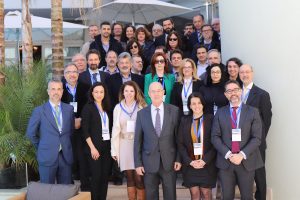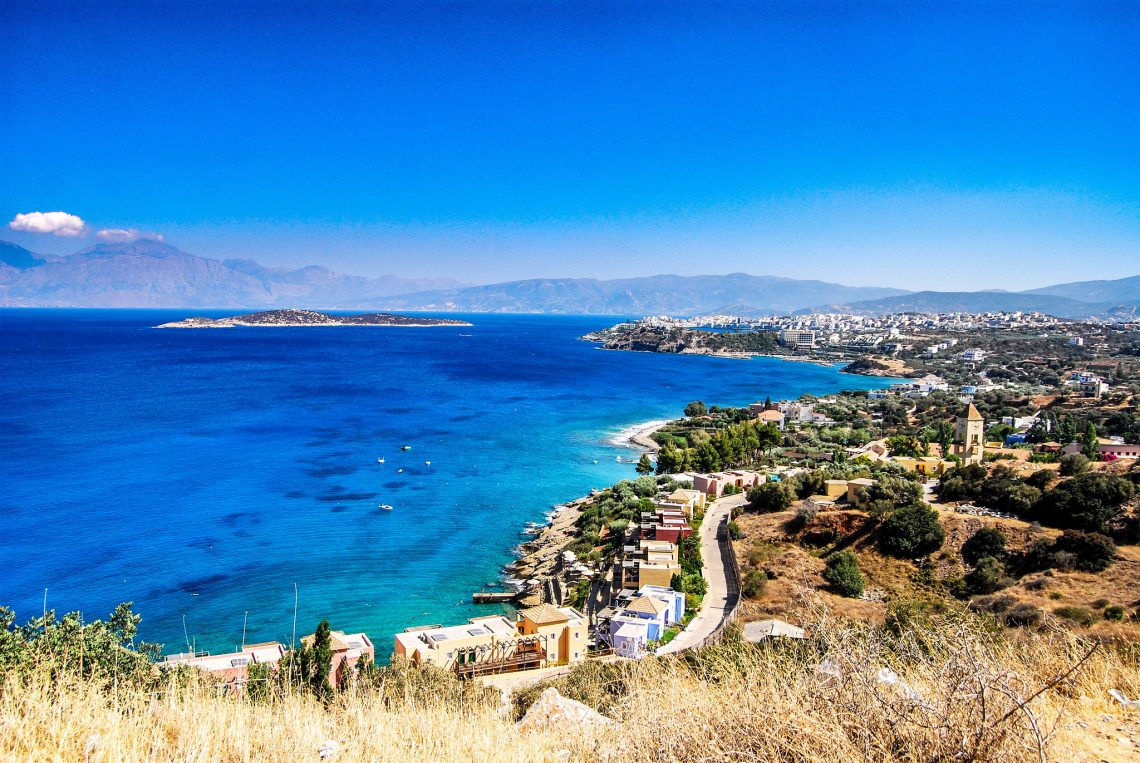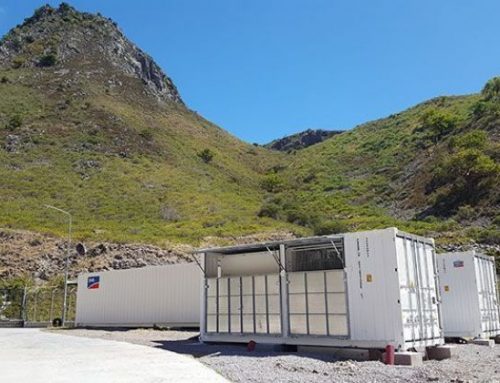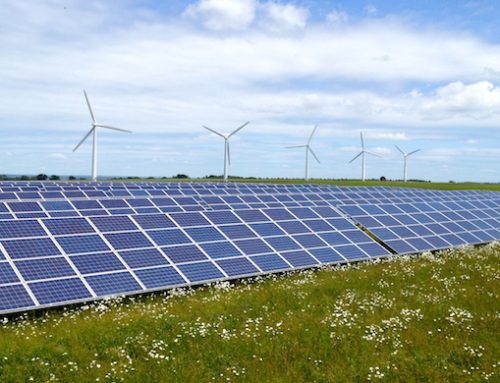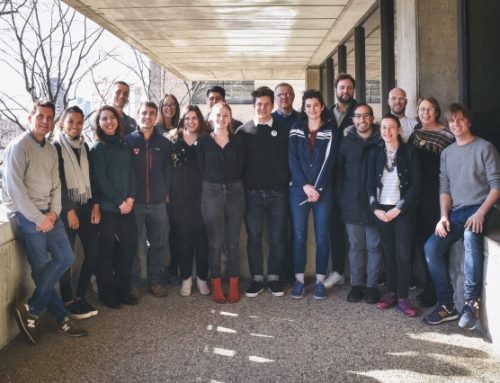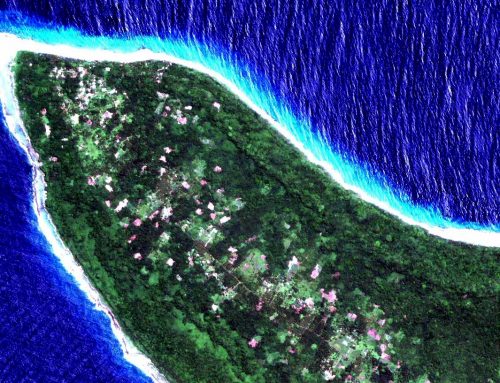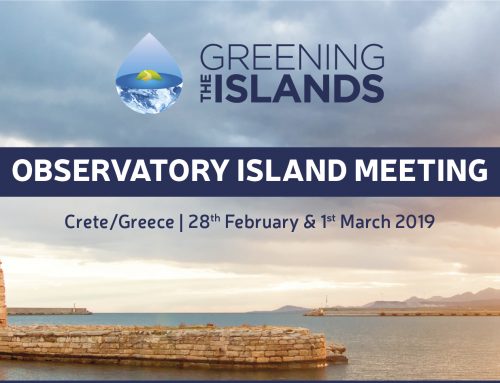Greening the Islands Observatory & Crete Region will involve Crete population in a new green growth strategy
Heraklion, Crete, 05 March 2019 – Crete, one of Greece’s top holiday destinations and battered by flooding last week, has identified key actions become a zero-emissions island by 2030 by boosting use of renewable energy and electric cars, optimising its water resources and recycling waste as a way to protect its local environment and make the island more resilient to climate change.
The priorities emerged from the first in situ meeting of the Greening the Islands Observatory, held on 28th February-1st March in Heraklion and hosted by the Region of Crete. It saw the active participation of all key stakeholders: technical departments of the Crete Region and government, utilities, universities, local SMEs, Greening the Islands specialists and corporate members such as Hitachi and Xant.
“Our government urgently needs to develop a new green growth strategy for the island to protect the environment, improve the quality of life of inhabitants and create a new economy that will generate new stable jobs related to innovative green sectors,” commented Stavros Arnaoutakis, Regional Governor of Crete. “We’re counting on our co-operation with Greening the Islands to develop a plan to becoming a zero-emissions island by 2030”.
With this target, Crete is joining other frontrunner islands on sustainability in the Mediterranean and beyond: Spain’s Balearic Islands earlier this year approved a law with environmental objectives for 2050 including freeing the archipelago of locally generated carbon emissions and making its energy system run on 100% renewables; in the Pacific, Hawaii is leading the way with an ambitious transition to wind and solar power with the goal of reaching 100% renewables by 2045; in Asia, the Philippine government closed the popular island of Borocay for a six-month clean-up and declared it a “critical area” and started to remove constructions from fragile areas or that have a significant impact on the ecological system.
“This meeting has been a unique opportunity to establish an operational local working group with all key decision makers within the Greening the Islands Observatory,” commented Gianni Chianetta, Director of Greening the Islands. “In the coming months, we’ll be exploring in detail the key actions that will make Crete, already one of the most visited Mediterranean tourist destinations, a leading global green tourism destination.”
The number of tourists visiting Crete is growing rapidly – now touching 5 million a year with international arrivals up by 40% over four years. But the number of tourists isn’t the only challenge. In recent days, the island has faced for first time tangible damages from climate change.
“The effects of climate change are already real. There is no more time to delay concrete actions to protect the environment and prevent further disasters”, stated George Kremlis, Honorary Director at the European Commission and Active Senior for Circular Economy In Islands. “A new plan for Crete needs to be originated by an integrated approach to resilience and sustainability. A circular economy has to be priority number one in the agenda of Crete and of the 2,500 EU islands.”
Working together with different stakeholders will be critical to Crete’s success. The latest event brought together local administration representatives, local utilities, regional universities, business members of the GTI Observatory and Greening the Islands experts, to discuss how to make Crete sustainable and resilient to climate change.
In the energy sector, the island will work on implementing storage systems to support the increase of renewables. Energy efficiency solutions will be improved for hotels, buildings and street lights and information campaign planned to increase the acceptance of renewables in Crete.
Crete is an isolated energy system and all its consumption is produced locally: there are three thermal power plants, burning fuel oil and diesel, and renewable energy plants that cover an annual share of 20-24% (close to the upper technical and operational limit for a non-interconnected electric system). Crete has total capacity of 299 MW of renewable energy systems, which includes 200 MW of wind farms, 98 MW of photovoltaic plants, 0,3 MW of hydroelectric and 0,5 MW of biogas. The remaining system capacity available for RES development is 16 MW which will be used for PVs on roofs and PVs for net metering.
In terms of water, the island will study losses in the water grid, solutions for the efficiency of system and seasonal fluctuations in demand due to tourism. After that, a strategy for drought protection will be developed, potentially including innovative desalination plants.
On mobility, Crete is looking into electrifying ports and vessels with charging infrastructure and a policy to promote use of electric boats. Moreover, it wants to incentivise the use of electric cars, impose restrictions on polluting vehicles in urban areas and create a business model that encourages private companies to support the adoption of electric vehicles. A web-app to support the use of electric vehicles by locals and tourists could be adopted. Crete wants also examine the possibility to develop a V2G (Vehicle to Grid) pilot and to create road paths for bicycles.
As for waste, the GTI Observatory will propose new methods to increase separate collection starting with hotels and markets and then moving to domestic organic waste collection. Biogas plants for organic waste and domestic composting for remote areas will be evaluated and the opportunity of organic sludge treatment and reuse for agriculture analyzed. The working group will also see how to increase collection and reuse of demolition materials. Proposals for awareness campaigns for the Crete population will be one of the key point as the co-operation of local residents has been identified as a key factor for better results. The GTI Observatory will also investigate best practices around Europe for waste treatment and waste separate collection.
For each sector a thematic online forum in the Greening the Islands web-app will be created, where all technical documents of the meeting will be published and where all key stakeholders from Crete will continue to discuss their work ahead of the next meeting, expected in the summer. Crete residents will be able to see the forums on the website of the Regional government, follow the debate and send comments.
